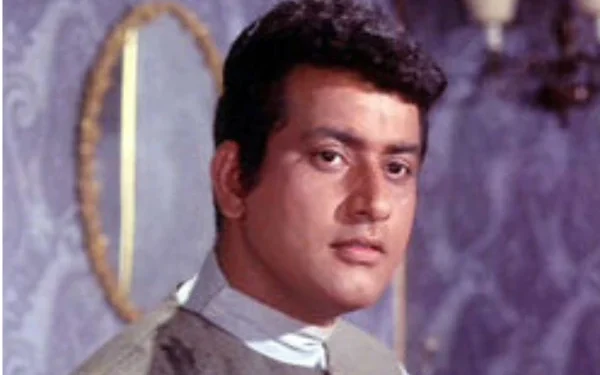Introduction The Indian film industry has lost one of its most celebrated actors and filmmakers, Manoj Kumar, who passed away at the age of 87. The veteran actor, known for his deeply patriotic roles and timeless contributions to Bollywood, breathed his last in Mumbai on Friday due to heart complications. His demise marks the end of an era in Indian cinema, leaving behind a legacy of films that inspired national pride and cinematic excellence.
Manoj Kumar’s Final Days According to reports from Indian media, Manoj Kumar had been facing health complications for some time. He was admitted to Kokilaben Dhirubhai Ambani Hospital in Mumbai, where he passed away at 3:30 am on Friday. Medical sources revealed that the primary cause of death was heart failure, while liver complications were cited as a secondary cause.
Manoj Kumar’s son, Kunal Goswami, confirmed the news and expressed gratitude that his father passed away peacefully. The actor’s funeral is scheduled to take place on Saturday morning, where his family, friends, and industry colleagues are expected to pay their last respects.
Tributes from the Nation The news of Manoj Kumar’s passing has sent shockwaves across India, with prominent personalities, politicians, and fans expressing their grief. Indian Prime Minister Narendra Modi took to social media to honor the late actor. Sharing nostalgic pictures with the cinematic icon, Modi wrote, “Deeply saddened by the demise of legendary actor and filmmaker Shri Manoj Kumar ji. He was an icon of Indian cinema, remembered for his patriotic spirit, which was reflected in his films. His works have inspired national pride and determination and will continue to inspire generations. My thoughts are with his family and fans at this time.”
Apart from political leaders, Bollywood celebrities, including veteran actors and directors, paid tribute to the late legend. Amitabh Bachchan, Dharmendra, and Hema Malini, who shared the screen with Manoj Kumar in multiple films, reminisced about their fond memories with him. Social media platforms were flooded with condolences, as fans revisited his iconic roles and evergreen dialogues.
Early Life and Entry into Bollywood Born as Harikrishnan Goswami in 1937 in Abbottabad (now part of Khyber Pakhtunkhwa, Pakistan), Manoj Kumar’s family migrated to India after the partition. His deep-rooted love for Indian culture and heritage was evident from an early age, shaping his film career that predominantly revolved around themes of patriotism and social justice.
Inspired by the legendary actor Dilip Kumar, Harikrishnan adopted the screen name ‘Manoj Kumar’ after watching Shabnam (1949), where Dilip Kumar’s character was named Manoj. This inspiration led him to pursue acting with unwavering determination, ultimately making his Bollywood debut in 1957 with Fashion.
Rise to Stardom: The Making of ‘Bharat Kumar’ Manoj Kumar rose to prominence with his impactful performances in films such as Kaanch Ki Gudiya (1961), where he starred opposite Saeeda Khan. However, it was his role in Shaheed (1965), based on the life of freedom fighter Bhagat Singh, that cemented his reputation as a patriotic hero in Indian cinema. The film was critically acclaimed and played a significant role in fostering nationalist sentiments among audiences.
His career-defining moment came with Upkar (1967), a film inspired by Prime Minister Lal Bahadur Shastri’s call for Jai Jawan, Jai Kisan (Hail the Soldier, Hail the Farmer). Not only did he star in the film, but he also directed it, portraying the struggles of Indian farmers and soldiers. The film’s massive success earned him the nickname ‘Bharat Kumar,’ a title that stuck with him throughout his career.
Following the success of Upkar, he continued to make films that resonated with patriotic themes, such as Purab Aur Paschim (1970), Roti Kapda Aur Makaan (1974), and Kranti (1981). These films not only entertained audiences but also instilled a sense of national pride and unity among viewers.
A Versatile Filmmaker and Actor Apart from acting, Manoj Kumar was a brilliant filmmaker who excelled in storytelling. His directorial ventures often addressed social issues, highlighting the struggles of the common man. His film Roti Kapda Aur Makaan focused on unemployment and poverty, while Kranti depicted the Indian independence movement.
His contributions to cinema were recognized with multiple awards, including the prestigious Padma Shri in 1992 and the Dadasaheb Phalke Award in 2015, India’s highest honor in the field of cinema.
The Impact of Manoj Kumar’s Legacy Manoj Kumar’s films continue to hold a special place in Indian cinema. His work has influenced generations of filmmakers who admire his ability to blend entertainment with meaningful storytelling. His style of patriotic cinema remains unparalleled, and his dialogues continue to inspire audiences even decades later.
Beyond the silver screen, Manoj Kumar was known for his humility and dedication to social causes. He remained a staunch advocate for national unity and took pride in portraying India’s rich history and culture.
Conclusion The passing of Manoj Kumar marks the end of an illustrious chapter in Indian cinema. He was not just an actor but an institution of patriotism and cinematic excellence. While he may no longer be with us, his films and legacy will continue to inspire generations to come.
As Bollywood and the nation bid farewell to ‘Bharat Kumar,’ his contributions to Indian cinema will forever be cherished. May his soul rest in peace.

























